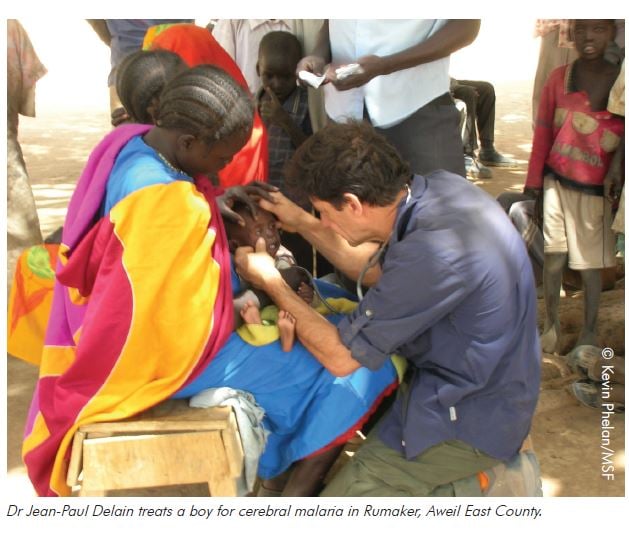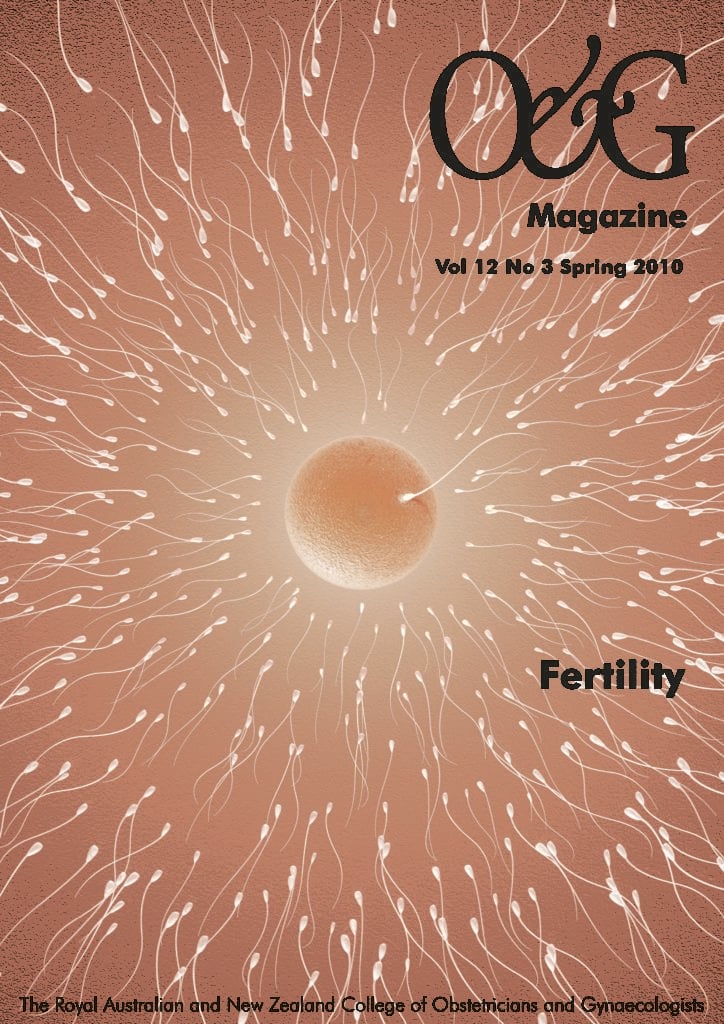I attended an information evening for Médecins Sans Frontières (MSF) in Alice Springs nearly two years ago and was astonished to learn there was a need for O and G specialists. I had always assumed medical recruitment for this organisation would be limited to trauma surgeons, anaesthetists and orthopaedic surgeons.
Women’s health in the developing world, particularly high causes of maternal mortality, is receiving more attention recently. This is because of the recognised impact on children who lose their mother in places where war, famine and poverty prevail. In countries where many men are either fighting or have died and women are the primary caregivers, without their mother many children will die or may be forced to join rebels, hence women’s health has been thrust into the limelight.
In sub-Saharan Africa, women’s health is a particularly complex area of medicine. Not only are you working with diseases and clinical issues we don’t generally experience first-hand in the western world, but in that setting, you are also contending with extreme poverty, fear, war, hunger, politics and cultural differences.
In January 2010, I was sent on my first mission to Aweil, South Sudan. I would be the obstetric component of a multinational team of midwives, paediatricians, pharmacists, logisticians and administrators, committed to lowering a maternal mortality rate of 2036/100,000, made huge by lack of infrastructure due to decades of warfare. In countries where most men are either dead or away fighting, the loss of a mother is devastating for a family; it is considered that most children under five years of age would not survive. The three major causes of maternal mortality – eclampsia, haemorrhage and infection – should respond to timely intervention. This would also help reduce the enormous psychological burdens. In a Sudanese colleague’s education group of 40 teachers and assistants, only one had both parents alive.
Once accepted for a mission, there are a few hurdles to overcome. For me, the most significant was the reluctance of my wife Chris – her concern for my health and safety and worry about separation after many years of togetherness. Also, it’s very difficult to envisage living conditions and what lies ahead, so some degree of anxiety is inevitable, especially on a first mission. However, long talks with two outstanding Australian midwives who had been to Aweil were very useful in surmounting these problems.
The most rewarding aspect of working in Aweil was feeling useful. It was very satisfying to work almost solely on clinical grounds as we had very limited technology. While there was one ultrasound machine, there were no CTGs or IVACs. Biochemistry was limited to Hb (not FBC), syphilis (rapid test) and Parachek (a malaria screen) – there was no bacteriology or histology. There were clinical challenges abound…ruptured uteruses, late obstructed labours (days!) often with fetal death, compound presentation of second twins, placenta praevia (average parity 7 to 8), malaria, syphilis, elephantiasis and maternal tetanus.

Also, to be sincerely thanked by the grieving relatives of a dead mother for trying to save her is a profoundly moving experience. The gratitude is overwhelming, as you know as well as the locals, if we weren’t there, they wouldn’t have a chance.
A major cause of perinatal death in Aweil is neonatal tetanus, perhaps due to a traditional practice of rubbing cow dung on the umbilical stump. Education and opportunistic vaccination at the antenatal clinics helped the women who live in town, but many in outlying areas cannot access these services, so Médecins Sans Frontières set up a program to administer vaccines to the local people.
I had not been closely involved in the setting up of a mass vaccination program before and was astonished at the logistics. Exhaustive negotiations were undertaken with the bureaucrats at the local Ministry of Health before permission was granted. Then we had to organise a team consisting of Sudanese and international staff – nurses, administrators, logisticians and pharmacists. The biggest challenge would be how to keep the cold chain intact over hundreds of kilometres of desert roads, to arrive in Aweil where the generator power only worked at certain times.
As with any growth experience, it was a bit of a roller-coaster ride, but with many more ups than downs. I couldn’t have been luckier in my choice of non-government organisation (NGO). In my view, Médecins Sans Frontières has impeccable credentials as an employer: remarkable transparency and honesty, excellent infrastructure, lack of potentially compromising dependence on governmental assistance, as well as a proud history and a very sympathetic and egalitarian philosophy. Despite being in a potentially dangerous area, I felt safe as our security is the number one consideration. Also, it’s truly international. One of the most exciting aspects of working with Médecins Sans Frontières is the interaction with colleagues with disparate backgrounds but united in purpose.
I had always wanted to work with an NGO in my retirement. At Médecins Sans Frontières, the placements are usually only three months for consultants, which is short compared to other NGOs. I’m now looking forward to further projects and new challenges. Perhaps this is what all those past decades of hard work and sleepless nights have been in preparation for!
To volunteer with Medecins Sans Frontieres or to make a donation go to: www.msf.org.au.






Leave a Reply